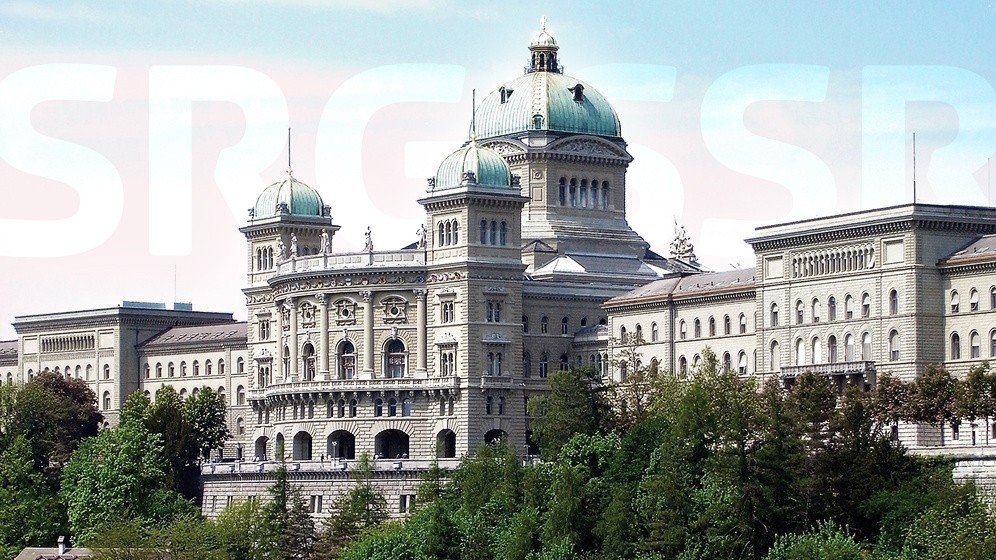Stronger distinction from private broadcasters: Federal Council grants SRG new license
The Federal Council has granted SRG a new license despite criticism in the consultation process. This will come into force on January 1, 2019 and will be valid for four years. The SRG is to distinguish itself more strongly from private broadcasters. The Swiss Media Association criticizes the decision.

The Federal Council wants to sharpen the SRG's performance profile and outline its public service character more clearly, writes the Uvek department of Media Minister Doris Leuthard in a statement. In the medium term, the current Radio and Television Act is to be replaced by the Federal Electronic Media Act. According to the Uvek, the license therefore has a "transitional character". It does not bring any fundamental changes.
Ensure quality
With the new license, however, SRG is to distinguish itself more strongly from the private broadcasters. It must set content and formal quality standards for all editorial areas and ensure processes for checking them. SRG must use at least half of its fee income for information. It already does this today. However, this is now a requirement. The concession secures the current information and cultural services, writes the Federal Council.
Offers for young
SRG must give more weight to the exchange between the language regions. Thus, it is specified that the linguistic regional exchange should be reflected in the daily news coverage. Furthermore, the SRG is obliged to provide offerings that promote the participation of young people in political, economic, social and cultural life. In addition to radio and television programs, the new license also explicitly mentions online contributions as part of the journalistic offering. However, the restrictions on online offerings - such as the ban on online advertising - remain unchanged.
Cooperation with private parties
SRG is now required to cooperate with private Swiss media companies. It is to make short versions of daily audiovisual content available to them. In doing so, it must guarantee transparent and equal terms of use. It may charge for the costs incurred. In entertainment and sports, SRG is to seek cooperation with Swiss broadcasters in order to provide them with an attractive offering. The license also requires SRG to maintain a permanent dialog with the public and to regularly put its offering and corporate strategy up for discussion.
Fewer compulsory radio programs
In contrast to the old license, only the first three regional language radio stations and the Romansh station are anchored in the license as mandatory stations. The SRG is thus free to decide whether or not to offer other programs. These are the special-interest programs Musikwelle, Option musique, SRF4 News, Swiss Pop, Swiss Jazz, Swiss Classic and Virus. The Federal Council writes in the report on the concession that SRG could do without individual offerings, combine them and offer them in whole or in part on the Internet. This would give it more entrepreneurial leeway.
The new license also gives SRG the opportunity to replace the second television channel in Italian-speaking Switzerland (RSI La 2) with a multimedia offering.
March stop demanded
The Federal Council's approach was met with criticism in the consultation process. The National Council's Telecommunications Committee called for a halt. The tenor of the FDP, SVP and BDP was that the license anticipated changes that would have to be discussed in parliament as part of the planned law on electronic media. The three parties called for a temporary extension of the current concession. Changes to the content should only be made once the future mission of the SRG has been clarified. The CVP, the SP and the Green Liberals were in agreement. The CVP, however, stated that the criticism of the SRG's "overpowering market position" should be taken seriously. It must be obliged to produce more efficiently, more cost-consciously and in a more resource-conserving manner.
Publishers' association criticizes decision
The Swiss Media Association (VSM) has little sympathy for the Federal Council's approval of the new SRG concession. In a statement, it said that the right thing to do would have been to suspend and extend the existing license. Particularly in the online sector, the publishers would have liked to see a detailed discussion of the public service mandate first.
Since the concession explicitly includes an online mandate, there are fears of further competition for the private broadcasters. For example, the second TV program planned in Ticino is to be available only on the Internet. "If this becomes a press-like portal, it will compete head-on with the publishers," warns the VSM. The "fee-financed expansion in the online sector" is unconstitutional and would further put newspapers, as the most important media genre for opinion formation, under pressure, writes the publishers' association. "State-financed free offerings on the net are dangerous. They undermine the users' willingness to pay, which is still being developed. The constitutional consideration for the private sector, for the press, is clearly being disregarded by the Federal Council."
Furthermore, the VSM warns, there is no market failure in the online sector that would authorize the state to intervene. The private broadcasters cover the online population - especially young people - very well with their public service offerings. "The principle of subsidiarity also applies in the media sector: The state must only make possible and finance what the market cannot offer," was the criticism from the publishers' association. (hae/SDA)









